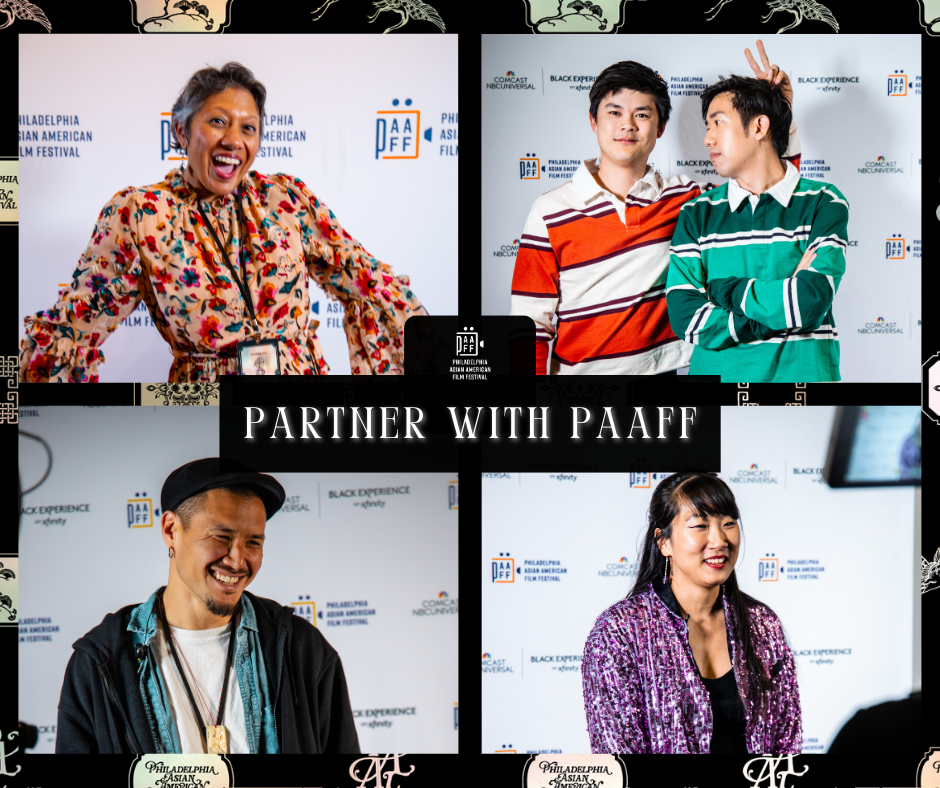Music of Asian America Conference: What is Asian American Music?
University of Pennsylvania, ARCH Arch Building, 3601 Locust Walk, Room 108, PhiladelphiaIn partnership with Music of Asian America Research Center and University of Pennsylvania Asian American Studies Program, we present the third annual PAAFF Conference. This year’s three-day conference explores the Music of Asian America through a series of paper presentations and interactive workshops that will run parallel to festival film programming, punctuated by two live musical showcases on Friday and Saturday nights during Opening Weekend. Bringing together filmmakers, academics, and other creatives - the PAAFF Conference presentations include many of the leading scholars on these subjects and top performing artists in their field. All conference programs are FREE and open to the public, RSVP advised due to limited seating capacity. CHAIR: Brian Sengdala (Rutgers University) What is “Asian American music”? Some argue that it is not only a useful political and heuristic device, but also a beneficial term for building a community of artists. Others, however, have posited that we should not use this term because there is no distinctive musical style in music made by Asian Americans. This panel explores how Asian American musicians participating in different genres use style to contend with stereotypes and the North American racial landscape. PANELISTS: Dan Wang (University of Pittsburgh) What is an Asian American style? Superorganism in the Assimilated Public What do we desire when we desire the existence of an Asian American music? What would be achieved by identifying a musical style as Asian American? Style, I argue, can allow members of a minority to recognize one another and thereby form communities (i.e. punk style, queer style), but at the cost of a public language that can be commodified, appropriated, and used to limit that very group’s expressive options. This paper engages with the indie band Superorganism, and in particular its lead singer Orono Noguchi. Peng Liu (University of Texas, Austin) From Learn Chinese to Chinese New Year: A Journey of Voicing Authenticity in MC Jin’s Rap Music The obstacles that Asian Americans’ racial identity incurs become ever manifest when they aim to survive in rap music, a genre that has dominantly been perceived as a cultural signifier of blackness. The first Asian American rapper with a legitimate chance to find mainstream success did not appear until the early 2000s when Chinese American MC Jin gained his fame out of BET’s 106 and Park freestyle battle competition. Jin’s increasing popularity makes his “inauthentic” race ever apparent. Drawing on scholarships in Asian American studies (Ancheta 2006; Fong 2008) and rap music studies (Wang 2007), this paper aims to discuss the issue by offering a close reading of two rap tracks by Jin—“Learn Chinese” (2004) and “Chinese New Year” (2014). Toru Momii (Columbia University) Performing While Asian: Yuja Wang, Sarah Chang, and Asian (American) Embodiment in Western Art Music My paper considers how performance analysis can illuminate the ways in which Asian and Asian American performers of Western art music have operated within and responded to racialized narratives of difference. I first explore how Asian and Asian American performers are faced with a conflicting narrative of inclusion and exclusion in American society. I then argue that these narratives have challenged Asian and Asian American performers to renegotiate their identities vis-à-vis the hegemony of whiteness in Western art music. Joseph Small (Swarthmore College) Looking Back: Spall Fragments: Taiko Drumming-Dance Action-Adventure for the 21st Century! For the past fifty years, taiko drumming has served as a popular vehicle for Asian Americans to express self-identity and empowerment, embody ancestral memory, and combat stereotyping. Spall Fragments, my original, evening-length stage production, mixes taiko, dance, and serio-comic theatre, as a critical response to the explosion of problematic issues surrounding Asian American taiko practice. Supported by media samples of the performances, through critical discussion of Spall Fragments’ creative processes, I will outline the intricate landscape of contemporary Asian American taiko before concluding on how a new wave of taiko practitioners navigate these persistent issues.

